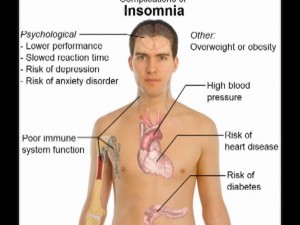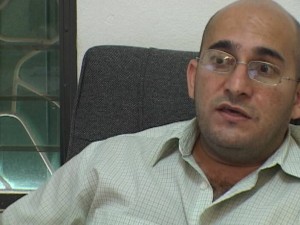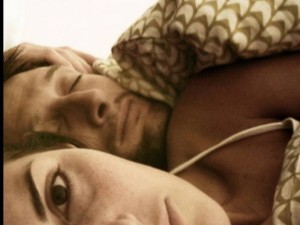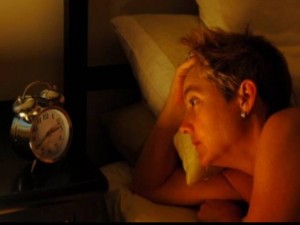Counting sheep, but Healthy Living can’t sleep
 Are you having trouble in falling asleep? It’s a problem that many experience and often diagnose as insomnia. There are many signs that accompany this condition that is often stress-related or caused by health problems or psychological factors. Healthy Living also found out that there are various degrees of insomnia.
Are you having trouble in falling asleep? It’s a problem that many experience and often diagnose as insomnia. There are many signs that accompany this condition that is often stress-related or caused by health problems or psychological factors. Healthy Living also found out that there are various degrees of insomnia.
Marleni Cuellar, Reporting
Insomnia is a sleep disorder that many people self-diagnose regularly. Just a sleepless night or two nights seems to warrant an individual as an insomniac; but, the characteristics of this disorder extend beyond this description. Neurosurgeon, Dr Joel Cervantes explains how an insomniac is identified.
Doctor Joel Cervantes, Neurosurgeon
“Unfortunately in Belize a lot of people self diagnose themselves and when you talk about insomnia we have to look at each specific individual. On an individual basis and should interrogate the patient and ask or find out what their sleeping pattern is. Find out how many hours they are sleeping at night. Find out if when they awake in the morning if they are rested or they’re tired. Find out if they’re difficulty is to fall asleep or if they do fall asleep but wake up in the middle of the night or early in the morning and they can’t fall asleep again.”
Therefore, if a person is having difficulty falling asleep, waking up often during the night and having trouble going back to sleep, waking up too early in the morning or feeling tired upon waking then they may have this sleep disorder. Also important in the classification is how long the disturbance lasts. Acute insomnia is short term lasting one night to a few weeks. Chronic insomnia is long term occurring three times a week for a month or longer. The causes for the disorder are wide ranging, from underlying health problems to environmental changes to psychological stressors.
Dr. Joel Cervantes
“Look and see what I have in my life that is causing me stress. What is making everything in my life change that I am not content? I am not content during the day I go to sleep, I find I have difficulty falling asleep or I get up in the middle of the night. The next morning I am tired and fatigued. And that is something people need to look at because they might have insomnia and not realize it. Having insomnia can co-exist with a condition that is there already. Not only mental disease but like I said before you can also find it at times with people that have other health conditions. Maybe having diabetes maybe having heart conditions maybe having rheumatoid arthritis, thyroid disease hypo or hyperthyroidisms you can find people who have sleep conditions like insomnia.”
Considering the necessity of quality sleep on the body’s functioning, the disorder can have serious implications on an insomniac’s health. Dr Cervantes describes what is considered adequate sleep and what happens to insomniacs who are naturally lacking.
“Traditionally it was said that you had to have 8 hours of sleep but it has been seen otherwise. It is one an individual basis. It’s now generally accepted that between 6-7 hours of sleep is what most people can dwell on. It is counterproductive to have less than four hours of sleep and surprisingly even having beyond 81/2 to 9 hours of sleep is counterproductive also. Insomnia has complications. People who have insomnia to begin with the majority are not very alert. The following day or days they’re not very alert. They make mistakes at work. On a long term basis they are fatigued. That can lead to high blood pressure; it can lead to heart diseases. It’s a vicious cycle. It lowers your immune system makes you more prone to infections and it makes you more prone also to obesity because you’re not sleeping well.”
A family doctor can diagnose insomnia by a physical examination and a thorough look at the medical and sleep history. They also take into account, eating habits, exercise patterns, emotional stresses and of course sleeping patterns. There are specialized sleep tests used as well; however, they are not available in Belize. As for treatment, Dr Cervantes advocates for identifying the cause and addressing them appropriately before any medication is prescribed.
“The treatment for insomnia is first trying to identify the cause. If its stress; it’s working on stress. It’s not necessarily giving a medication for anxiety. It is first and foremost seeing what the cause is. Do you have diabetes? Get your sugar controlled. Do you high blood pressure that’s not controlled. Control your high blood pressure. Do you have rheumatoid arthritis and maybe you have pain and it’s not making you sleep. Does that person have depression? So trying to find out what the cause is the first way you treat insomnia. The best thing they can do is do a little bit of research when it comes to insomnia and realize that the best approach is when the doctor sits down and is genuinely concerned that is the best approach to insomnia. That is the best approach there is no magic medication for insomnia.”
To end our newscast, NEMO is advising that a preliminary phase and a tropical storm watch will be declared at six a.m. Friday morning. So stay tuned for updates on the upcoming storm that threatens to become a hurricane.



